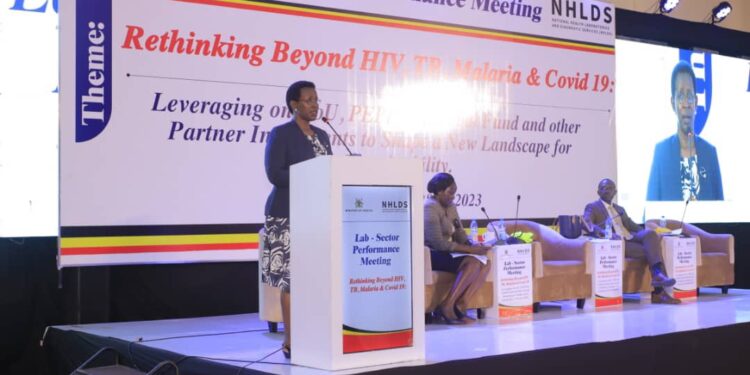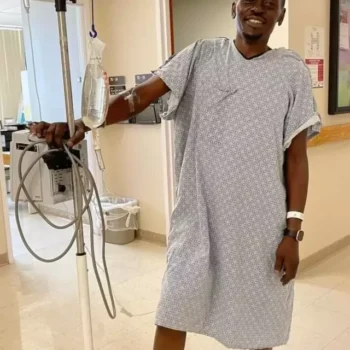KAMPALA, UGANDA | NOW THEN DIGITAL — The Ministry of Health (MOH) in Uganda has unveiled comprehensive guidelines for paternity testing, introducing important changes to the practice. These guidelines mandate laboratories across the country to apply for accreditation to collect samples, requiring the inclusion of a counselor or clinical psychologist on their staff.
Released during the National Laboratory Sector Performance Review Meeting on Thursday, the guidelines further specify that technical staff employed by these labs must receive specialized training in DNA sample management. Their qualifications and names will be submitted to the ministry for verification.
Dr. Diana Atwine, the Permanent Secretary at the Ministry of Health, emphasized that these guidelines aim to regulate the practice, addressing concerns arising from a surge in paternity testing requests that have caused family disputes.
Dr. Atwine expressed concern about some clinics advertising themselves as DNA test providers due to the increasing demand for the service. This practice has now been banned, and any promotion of such services will result in automatic license cancellation.
Unlike previous practices where individuals could conduct tests secretly, the new guidelines require users to sign consent forms provided by the Ministry of Health. These forms will capture essential details of the individuals involved, ensuring transparency and accountability.
In July, Members of Parliament called for government regulation of paternity testing as demand for the service skyrocketed, increasing by seventy percent following revelations by the Ministry of Internal Affairs.
Dr. Suzan Nabadda Ndidde, the Executive Director of the Uganda National Health Laboratory Services, emphasized the importance of international accreditation for laboratories. Labs specializing in DNA testing are required to seek international accreditation within five years of operation to ensure internationally recognized testing standards. Currently, the country is working to ensure that all tests produce internationally acceptable results.
Additionally, Uganda is striving to enhance its self-reliance by reducing the need to send samples abroad for specialized testing. To facilitate the transfer of DNA samples abroad, the Ministry now requires facilities collecting the samples to have a valid material transfer agreement approved by the Director General of Health Services.

















